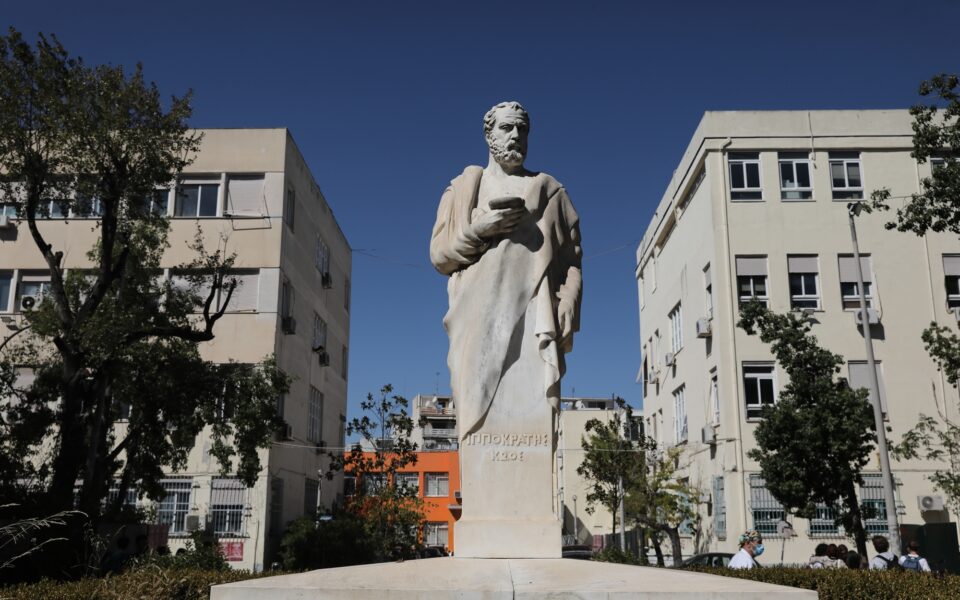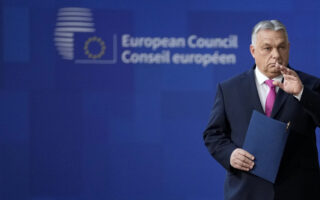Global Hellenism: A single research area

In 2000, the European Commission decided to create the European Research Area in order to promote closer cooperation between EU countries, facilitate the mobility of researchers, and enhance the innovation and competitiveness of research institutions. The European Research Council (ERC) and the Horizon Europe funding program are the fruits of this effort. The initiative has had a positive impact on both basic and applied research. Thanks to the funding of projects, it has kept many innovative minds in Europe.
However, it has not slowed down the migration of scientists out of Europe, particularly to the US. Greece also benefited significantly. However, because of bureaucratic red tape and the absence of a single state institution responsible for research, the benefit has been disproportionately small both in relation to the country’s outstanding potential and in comparison to countries of similar size. Greece, with 69 grants, lies far behind Finland (223), Denmark (273), Austria (361), Belgium (491), Switzerland (594) and the Netherlands (1,124). One Dutch university alone (Leiden) had twice as many grants as Greece (132) in the period 2007-2023.
The absence of coordinated support for research, despite calls from the scientific community, is driving innovative scientists abroad. Those who leave have ample reason not to want to return. Salaries are unacceptably low, research funding is meager, the budgets of universities have not returned to pre-crisis levels, there are obstacles to cooperation between universities and research institutions, and the bureaucracy in the management of research funds has the dimensions of a Kafkaesque novel – it treats the researcher by default as a potential embezzler.
What do we do until the problems are solved by fundamental changes in the organization of research? Are we going to continue to consider expatriate scientists as lost to their home country – unless they occasionally participate in electoral bodies, evaluation committees, and councils, or collaborate with domestic institutions? The scientific potential of Greeks abroad is immeasurable and its mapping incomplete. Significant efforts are being made by the National Documentation Center, but it focuses on mapping domestic research.
In order for Greece to be able to directly exploit the research potential of Greeks abroad, we need to do what the EU did in 2000 – to see global Hellenism as a single research area, where various kinds of collaborations can take place. I mention, for example, joint research programs, the participation of Greek scholars in research projects directed by diaspora scientists, seminars by experienced scholars to inform young researchers about the requirements for a successful funding application, the funding of exchanges, the establishment of visiting professorships or visiting researchers, the linking of innovative research with entrepreneurship, and the mobilization of sponsors abroad to fund research in Greece. Every major US university has chairs and buildings with the names of Greek sponsors. The resources are there; what is lacking is trust in Greek institutions and knowledge about how sponsorships can be used profitably and yield a return on investment.
The single research area of global Hellenism needs a body that will coordinate collaborations between researchers in Greece and abroad. This coordinating role cannot be assumed by the General Secretariat for Greeks Abroad at the Ministry of Foreign Affairs. Its mission is to serve Greeks abroad through the consular authorities; it does not treat them as a potential resource for research and innovation. The General Secretariat for Research supervises research and innovation bodies in Greece, while the Ministry of Education is responsible only for research at universities – a typical case of fragmentation of public institutions responsible for research.
The single research area of global Hellenism will be the product of private initiative. Networks of Greek scientists abroad are already active, such as ARISTEiA and the Hellenic Institute of Advanced Studies in the US. The next step is for the relevant initiatives to join forces to create a coordinating body. Without harnessing the potential of expatriate researchers, development in Greece will be doing jump stops, not achieving leaps.
Angelos Chaniotis is chairman of the nonprofit Komvos – Networks of Global Hellenism initiative and a member of the National Council of Research, Technology and Innovation, and professor of ancient history and Classics at the Institute for Advanced Study in Princeton, New Jersey.





